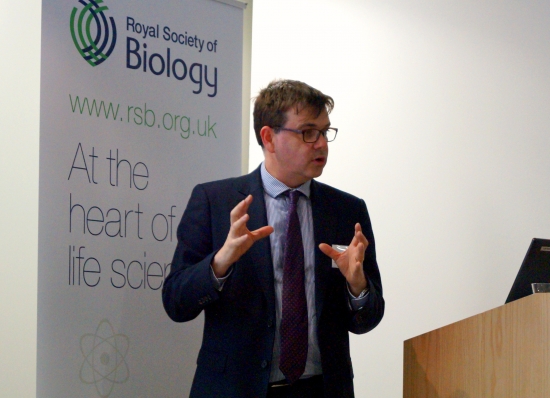News
More resources needed to encourage academic entrepreneurship
- Details
- 10 December 2015
Greater incentives and training are required to encourage academic entrepreneurship in the biosciences, according to the Chief Scientific Adviser to the Department of Business Innovation and Skills, Professor Tim Dafforn.

Speaking to a meeting of the Royal Society of Biology’s Member Organisations, Dafforn used his experience as a researcher and entrepreneur to highlight the challenges facing academics looking to commercialise their innovations.
Dafforn, an expert in biophysical spectroscopy who has developed a number of commercial projects using his research, said that academics often don’t have the time to grow their innovations into businesses, and that it can sometimes take decades for commercial products to develop from blue skies research.
“If we are going to ask more academics to become entrepreneurs we need to solve the time problem,” said Dafforn, who benefited from two year-long entrepreneurial fellowships that allowed him to concentrate on growing businesses.
“It is a challenge to incentivise people to be entrepreneurs when it could take 25 years and you end up with 35% equity,” he said.
During his presentation, Dafforn said that the UK must move to a more complex model of science funding where there is a clearer plan to make money from the innovations discovered in science.
He suggested a range of ideas to help academic progress in entrepreneurship, from two-day skills modules at student level, to adoption of a US-approach, where heads of labs rarely run companies but delegate the responsibility to one of their post-doc students.
Dafforn said changing the culture of science to encourage more entrepreneurs would take ‘a generation’. He also said it made more sense to encourage entrepreneurship at young and older age, as during middle-age the burden of mortgage and young families often makes scientists more risk-averse.

